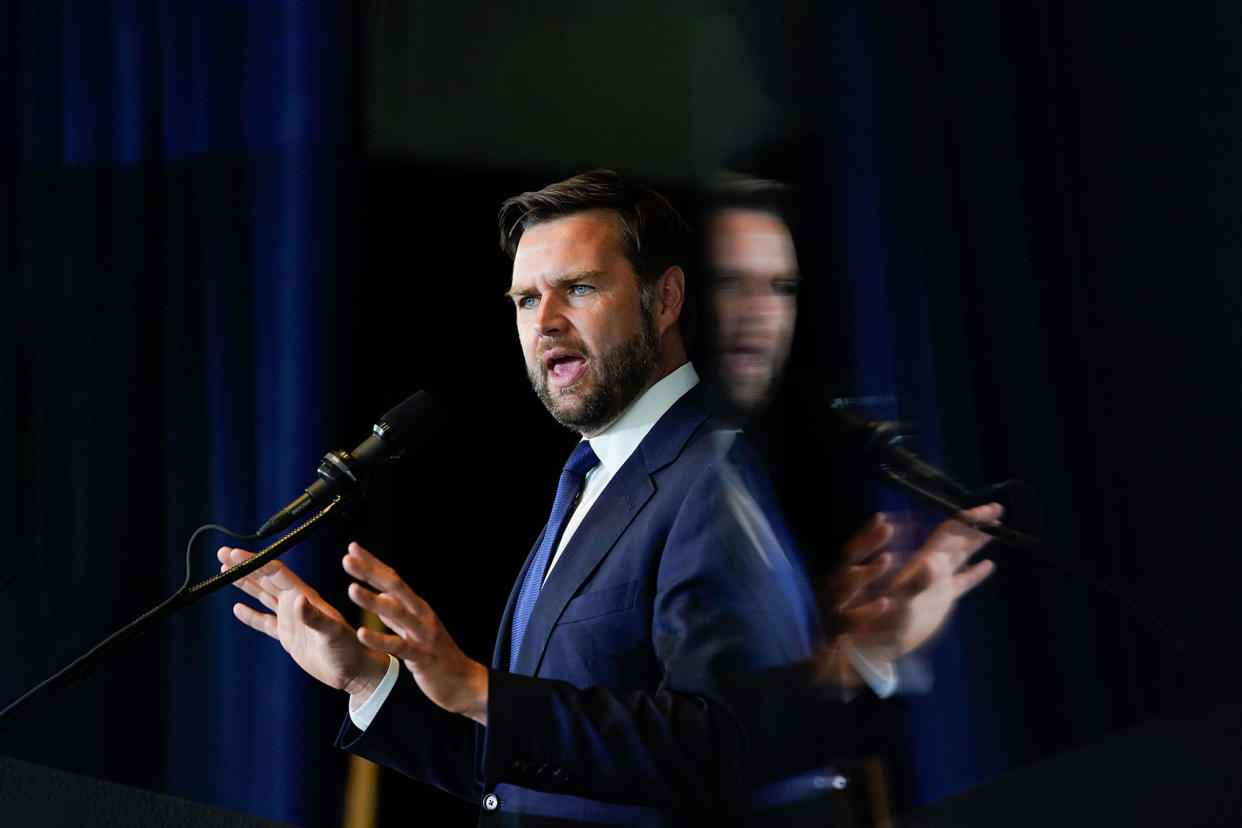"America First" foreign policy: JD Vance wants to abandon Ukraine but bomb Mexico and Iran

- Oops!Something went wrong.Please try again later.
In his address at the Republican National Convention on Wednesday, Sen. JD Vance, R-Ohio, suggested he was an opponent of American military interventionism, citing the 2003 Iraq War as a conflict that did not need to happen and declaring that "we will send our kids to war only when we must." That speech and similar comments have been cited by some pundits as evidence of Vance making a clean break from the GOP's more hawkish wing.
But these generalized claims, often centered on now-convenient criticism of a war that happened more than 20 years ago — paired with opposition to helping Ukraine fight off an invasion today — are exposed by Vance's repeated calls for aggressive military force, including bombing campaigns targeting Iran and drug cartels in Mexico.
Both during his presidency and after, Donald Trump, who this week picked Vance as his running mate, floated various proposals for bombing and invading Mexico to curb the flow of fentanyl across the border. These plans, quickly shut down by others in his administration, are now being echoed by GOP lawmakers, conservative think tanks and Vance himself, despite the possibility that a destructive war in a neighboring country (and the United States' second largest trade partner) would significantly worsen the ongoing refugee crisis that Republicans have sworn to keep south of the Rio Grande.
As Vance said on Meet the Press last year, endorsing an invasion of Mexico: “I want to empower the president of the United States, whether that’s a Democrat or Republican, to use the power of the U.S. military to go after these drug cartels."
Mexican drug cartels are responsible for manufacturing and smuggling much of the fentanyl that enters the United States and causes most drug overdose deaths, killing about 150 people a day. "We have to recognize the Mexican government is being, in a lot of ways, destabilized by the constant flow of fentanyl," Vance continued.
Vance and other Republican lawmakers, such as Sen. Lindsey Graham, R-S.C., have proposed labeling drug cartels as terrorist groups to allow U.S. forces to take aggressive action.
Former Mexican President Andrés López Obrador, in response to such calls, said in 2022 that his government would not "permit any foreign government to intervene in our territory, much less that a government's armed forces intervene." Mexico's own efforts to suppress the drug trade in the 2000s resulted in 60,000 dead and 230,000 people displaced, many of whom immigrated to the United States. Tens of thousands of others simply disappeared, while the cartels remained in power.
The U.S. has previously tried stop the drug trade at its sources in other Latin American countries, including efforts by the Clinton administration to funnel aid into the Colombian government's bloody anti-cocaine crackdown with little results to show for it.
Elsewhere in the world, Vance has joined other "America First" Republicans in opposing further aid to Ukraine as it struggles to repel a Russian invasion. "I gotta be honest with you, I don't really care what happens to Ukraine one way or another," he said when Russia launched its ground offensive in February 2022. Both he and Trump support a negotiated peace with Russia, with the former president already speaking with right-wing Hungarian Prime Minister Victor Orban about his plans.
On the other hand, Vance is perfectly happy to escalate warfare with Iran, telling Fox News that "a lot of people recognize that we need to do something with Iran — not those weak little bombing runs ... If you're going to punch the Iranians, you punch them hard, and that's what [Trump] did when he took out [Iranian general Qassem] Soleimani."
Vance has also staked out a hardline pro-Israel stance, supporting billions of dollars of military aid to Israel, proposing to defund colleges where pro-Palestine protests have taken place and urging President Joe Biden not to grant immigration protections to Palestinian refugees, who he called "a population of potentially radicalized individuals.”

